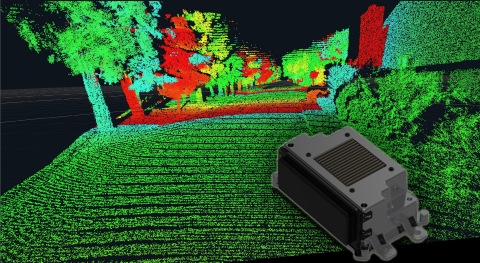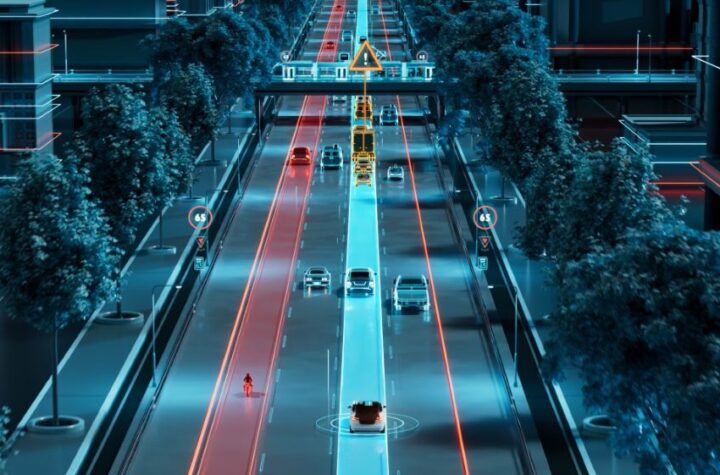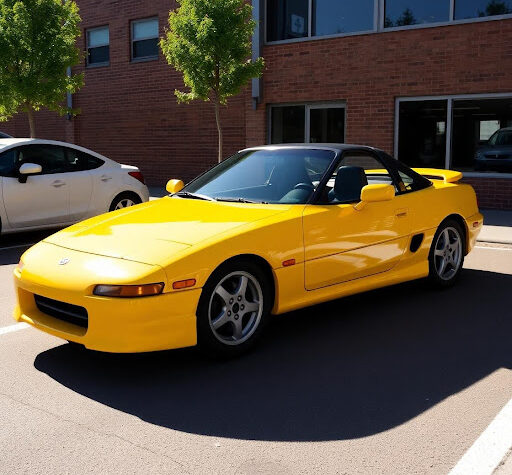
Technology company Continental is further strengthening its LiDAR sensor portfolio through a minority investment in LiDAR pioneer AEye, Inc. LiDAR sensors belong, besides camera and radar, to the key technologies for Automated Driving. Continental has accumulated over 20 years of expertise in LiDAR sensors alone. AEye, located in Dublin, California (USA), has developed a long-range LiDAR technology combining an amplifiable 1550nm laser with patented feedback-controlled Microelectromechanical System (MEMS) scanner. This technology can be configured via software and thus be optimized for manufacturers vehicle and applications. The AEye LiDAR offers maximum leverage for passenger and commercial vehicle applications because it combines a high dynamic spatial resolution with a long-range detection. Vehicles can be detected at a distance of more than 300 meters and pedestrians at a distance of more than 200 meters. AEye’s ability to detect small, low-reflective objects, such as bricks, at a distance of 160 meters with multiple measuring points is pivotal for Automated Driving in both passenger cars and commercial vehicles. Continental will utilize this LiDAR technology and industrialize the sensor to deliver a fully automotive-grade product. The first series production is currently scheduled for the end of 2024.
By partnering with AEye, Continental complements its existing short-range 3D Flash LiDAR technology, which goes into series production later this year, supporting highly automated driving in a global premium vehicle program. This start of production of the High-Resolution 3D Flash LiDAR (HFL) is a key milestone. It is the first high-resolution solid-state LiDAR sensor to go into series production in the automotive market worldwide.
“We now have optimum short-range and world-class long-range LiDAR technologies with their complimentary set of benefits under one roof. This puts us in a strong position to cover the full vehicle environment with state-of-the-art LiDAR sensor technology and to facilitate Automated Driving at SAE levels 3 or higher in both passenger cars and commercial vehicle applications,” said Frank Petznick, head of the Advanced Driver Assistance Systems (ADAS) business unit at Continental.
Blair LaCorte, CEO of AEye Inc., welcomes the Continental investment by saying, “ADAS solutions require a unique mix of performance, scalability, packaging, and a long-term commitment to reliability and safety. Continental is a recognized leader in automotive sensing technology as well as in automotive product industrialization and commercialization. We look forward to working closely with their team to customize our modular and scalable design to deliver Continentals high-performance long-range LiDAR systems to the world’s leading vehicle manufacturers.”
Commercial vehicle application is a touchstone
Automated vehicles capable of AD SAE level 3 or higher require a sensor setup that includes camera, radar and LiDAR to detect objects and usable trajectories around the vehicle. LiDAR sensors offer the strength of robust 3D pixel level detection at high resolution. Continental uses tailored automotive-grade LiDAR technology for both short- and long-range sensing. For the short range, 3D Flash LiDAR technology offers 3D pixel images very quickly and precisely by illuminating and capturing an entire scene in one pulse per frame of data (global shutter technology). For a robust detection of objects at long-range distances, 1550nm agile LiDAR technology provides a proven combination of software configurable HD resolution of over 1600 points per square degree and detection ranges beyond 300 meters. The patented MEMS-based design of AEye’s LiDAR provides tremendous solid-state reliability, while also delivering uncompromising performance under adverse weather and road conditions.
Commercial vehicles with their large mass and longer stopping distance face special challenges to enable safe automated driving. Automation for these vehicles will require a maximum sensor range and resolution to ensure sufficient processing time for automated decisions and actions.
“By bringing leading edge technology together from all three environmental sensor areas, we are creating synergetic effects that will benefit the vehicle manufacturers,” Petznick said. “Continental has vast expertise in all three sensor technologies and in software development. Access to 1550nm MEMS LiDAR technology is another step in this successful sensor strategy.”
Continental develops pioneering technologies and services for sustainable and connected mobility of people and their goods. Founded in 1871, the technology company offers safe, efficient, intelligent, and affordable solutions for vehicles, machines, traffic and transportation. In 2019, Continental generated sales of €44.5 billion and currently employs more than 232,000 people in 59 countries and markets.
For Continental, automated driving is an essential building block of future mobility. It will significantly change people’s journeys, for example, on the highway, in the city, and when parking. In 2012, Continental became the first automotive supplier worldwide to receive a license for highly automated test drives on public roads in the US state of Nevada. Sensors, control units, brake systems, software, connectivity solutions, driving functions as well as information and control systems for automated driving are developed in a global network focusing on Japan, China, the USA, India, and Europe. In the future, this will enable a wide range of solutions between partially automated and driverless vehicles. The aim is a seamless, efficient, sustainable, and comfortable mobility without crashes.




More Stories
Dry silicon composite by Blue Current is the next generation of battery technology
BlackBerry Unveils Strategic Relaunch of QNX Brand to Reinforce Leadership in Automotive and General Embedded Industries
Southfield Classics utilizes Ampere EV engineering to become the first manufacturer to achieve Low Volume Vehicle Manufacturer Certification